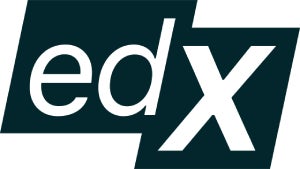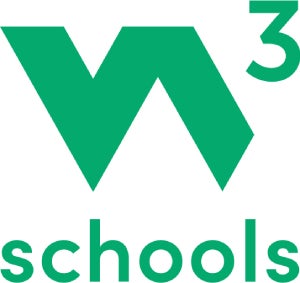- Best for access to a wide variety of courses: Coursera
- Best for access to traditional universities: edX
- Best for beginners: freeCodeCamp
- Best for rigorous technical courses: Udacity
- Best for making a portfolio: W3Schools
Online courses can be stepping stones to successful tech careers. Many let learners set their own hours, opening up opportunities for people who are working full time at the same time as they seek to gain more skills or a new certification.
When looking for the best online course platforms for people seeking tech or business skills, we assessed platforms based on the following:
- Criteria: Popularity, positive reviews and word-of-mouth.
- Practicality: May include a certification or specific tech skills, which can be included on a resume.
- Versatility: Offers courses for a variety of skill levels.
- Instructors: Who is teaching them? Is that person associated with a well-regarded university, corporation or organization? What has that person contributed to the field?
- Trustworthiness: Do users report problems with payment or false advertising?
SEE: Amazon offers AI and machine learning courses as part of its “AI Ready” initiative. (TechRepublic)
Coursera: Best for access to a wide variety of courses

Coursera is usually on lists of the best online course platforms for good reason: it offers a wide variety of courses for people at various stages of their careers and on many different subject areas of interest. Coursera partners with leading universities and corporations, and the courses are often taught by industry professionals and well-regarded academics. Coursera offers a wide variety of technology-focused courses, including on data analysis, IT and generative AI.
Pricing
Some Coursera courses can be completed within the 7-day free trial. After that time period, individual Coursera courses cost between $49 and $79, depending on the course, billed monthly. A Coursera Plus subscription provides access to all courses, specializations and certificates on the site and costs $59 per month. The annual plan, Coursera Plus Annual, provides the same access for $399 per year. Businesses, universities and governments can inquire about relevant plans.
Features
- Wide variety of courses.
- Content translated into multiple languages depending on the individual course.
- Career certificates for some courses.
- Job search guides for some courses.
- Self-paced or supervised courses.
- Degree programs from participating colleges and universities.
Cons
- Some users report problems with being over-charged or incorrectly charged for a subscription.
- Does not specialize in one field.
edX: Best for access to traditional universities

While some of the classes edX hosts, like Harvard’s well-known Introduction to Computer Science, are available for free elsewhere, the edX platform provides certifications and an extensive catalog of courses across industries affiliated with universities. edX’s tech-focused courses include artificial intelligence programming and business strategy related to AI, cybersecurity, cloud computing and more.
Pricing
Many courses provided through edX are free but require payment for a certification, which can cost $50 – $300; prices for more advanced courses may be higher. Verizon provides one year of free access, which learners can register for with or without a Verizon account. Businesses can contact edX for information about a corporate account.
Features
- Boot camps.
- Degree programs.
- Resume writing help.
Cons
- Some affiliated colleges are moving away from edX and shifting online classes to their own websites.
- Some users report hidden fees.
freeCodeCamp: Best for beginners

freeCodeCamp provides tutorials and courses on thousands of topics and a proprietary certification program. Beginners just learning to write code will find a wide array of tips for learning programming languages as well as more advanced instructions for applying that knowledge. freeCodeCamp’s text and video tutorials are relatively easy to access and use, even for people with little tech background. Their more advanced tech certifications include Data Analysis With Python, Information Security, Back End Development and APIs and more.
Pricing
freeCodeCamp is a nonprofit and funds itself through donations. All of its offerings are free.
Features
- All courses are free.
- Forums.
- Certification programs, which require five projects and associated exams to complete.
- English for Developers certification (for developers for whom English is a second language).
- Interview and job search resources.
Cons
- freeCodeCamp is a relatively small platform. This may be preferable to some learners or be underwhelming.
Udacity: Best for rigorous technical courses

Udacity sets itself apart with its nanodegree programs, which are months-long courses that mimic traditional college degrees and may result in certificates of achievement. Udacity is known for its relatively rigorous courses and hands-on components. Tech topics available as courses from Udacity include data science, programming, development, autonomous systems, product management, artificial intelligence and more.
Pricing
Accessing any content on Udacity requires a subscription. A subscription costs $249 per month, or $846 for four months. A team plan for companies with 50 to 1,000 employees costs $249 per user per month. Enterprises and governments can inquire for pricing information.
Features
- Courses in tech including AI, project management, executive leadership and more.
- Guided student projects.
- Hands-on assignments.
Cons
- Relatively expensive.
- Some reviews say the teacher-to-student ratio and quality of teachers has declined in recent years.
W3Schools: Best for making a portfolio

W3Schools provides straightforward, beginner-friendly classes focused entirely on programming, data analytics and website building. In addition, W3Schools provides services such as reference pages and website hosting, which may be useful if a learner wants to demonstrate their skills on their own website.
Pricing
Pricing for W3Schools depends on the class, certification or service being used; many of the tutorials are free. An ad-free subscription costs $14.99 per month. Pricing for certification exams vary.
Features
- Text tutorials.
- Hands-on exercises.
- Catalog of certification exams.
- Optional gamified “MyLearning” points system.
- Goal-setting tool.
- Website creation.
- Job board.
- HTML color code generator.
Cons
- May not be relevant to an audience already familiar with programming and the basics of data analytics or web design.
- Tutorials may be sparse and not add a lot of context about what each programming language is used for.
